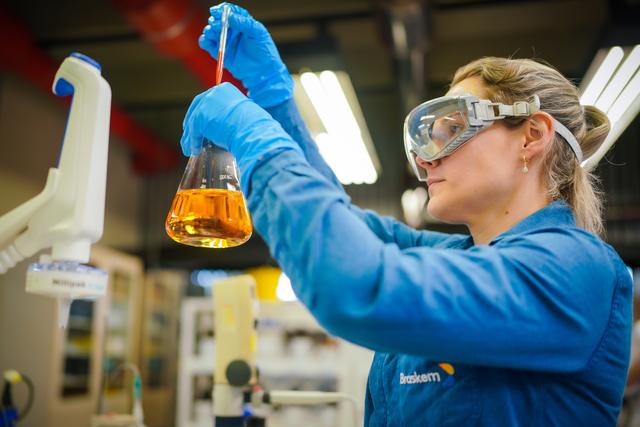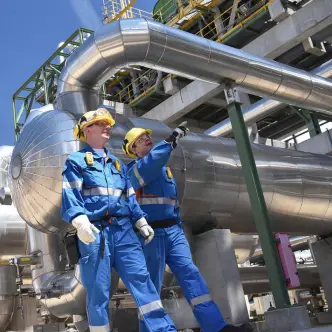Water: industry as part of the solution

Jorge Soto*
According to the World Economic Forum, the water crisis is the most impactful risk currently facing the world. While places such as Somalia suffer from long periods of drought, others, such as the South in Brazil, are exposed to heavy rains, which cause damage of great proportions. These large variations occur even within the same country, and all cases involve major consequences for socio-economic development. Climate change is already exacerbating this situation. Are we prepared to increasingly unpredictable and extreme scenarios?
For years, water management has been a priority issue for the UN (United Nations), but today the issue is also on the agenda of discussions involving a significant number of companies worldwide. This is because it is clear that society, government and businesses should work together to develop policies to improve, in all spheres, the efficiency and productivity of this irreplaceable natural resource.
While the management of industrial water traditionally focused solely on reducing costs and improving efficiency, - about two-thirds of the largest global companies reported being subject to risks related to the resource - environmentally responsible companies have now realized that such a strategy is a critical component for sustainable development. They do not wish to and cannot compete with the community. ON the contrary, they are required to engage in solving the problem.
At the door into the industry, water management should not only understand how water is used and what the final destination of the effluents is, but also analyze and optimize all resources of a production unit and take into account external factors such as climate change. In other words, it is a strategic issue, which should be incorporated into the business strategy. Businesses must identify risks and opportunities associated with the use of this feature in the short, medium, and long term. Population growth in cities, excess or lack of rain and regional integration considering the situation of the basins and changes in land use, are growing issues that should motivate businesses to strengthen the issue.
On the other hand, where there is a great challenge, there is also a vast number of opportunities. Many interesting initiatives that can be replicated are already a reality and many others can be developed through innovation. In the São Paulo ABC region, for example, the Aquapolo Project is the result of a public-private partnership that can provide up to 1,000 liters per second of reclaimed water from the treatment of domestic sewage to other companies in the Mauá Petrochemical Complex. The benefits go beyond drinking water savings, as many environmental and public health issues are minimized by sewage treatment. There is a clear social gain. Furthermore, industries in the region have gained by reducing the risk of shortages.
Another demonstration of the efforts made by the companies is engagement alongside the communities, in the search for solutions to the issues. In Brazil, the Movement for Water Loss Reduction in Distribution - an initiative of the Brazilian Network of the UN Global Compact and led by Braskem and Sanasa - aims promote a broad discussion on water losses in the distribution systems, with participation of governments, civil society, and the private sector. In addition, initiatives are included such as the UN CEO Water Mandate, which mobilizes business leaders worldwide in the search of advances in the water and sanitation management; the Technical Commission for Water, by CEBDS (Brazilian Business Council for Sustainable Development); and the Instituto Trata Brasil.
Solutions to environmental problems will continue to be discussed around the world. The UN has just proposed a new agenda for 2030: the Sustainable Development Goals. There is no doubt that industries have a key role in delivering solutions to this much-needed development. To do this, we must continue to do our homework, minimizing any negative impacts and enhancing positive impacts in the three dimensions of sustainability: economic, social, and environmental.
*Jorge Soto is the Director for Sustainable Development at Braskem
For more information related to press, please contact:
Fato Relevante
imprensa.braskem@agenciafr.com.br

Se você é um profissional da imprensa, a Braskem tem um canal feito só pra você.
Acesse aquiPress Releases
More news
Shell Chemicals and Braskem bring certified bio-attributed and bio-circular propylene and polypropylene to the U.S. market

Braskem announces partnership with Northwestern University for the development of CO2 conversion technology

Braskem invests in expanding capacity and partnerships for producing plastics from renewable sources

Braskem and Sojitz Corporation launch Sustainea

Braskem launches Wenew, its new global Circular Economy ecosystem

Braskem recognized by MIT as one of Brazil's most innovative companies
Customers
Become a Braskem customer
Braskem is one of the largest suppliers of chemical and petrochemical products in the world, recognized for its focus on sustainable development, innovation and quality.
We believe in lasting partnerships, we have a broad portfolio of products and we work together with our customers to create new practical and sustainable solutions in all markets.
Talk to our sales team


 Braskem Global
Braskem Global
 Braskem Idesa
Braskem Idesa
 Braskem USA
Braskem USA
 Braskem Europe
Braskem Europe





